Distinguished Librarian Award
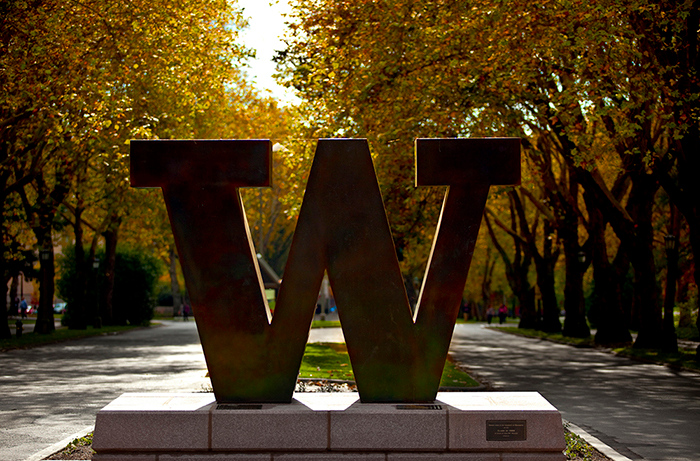
Distinguished Librarian Award
This annual award recognizes a librarian whose contributions advance the mission of the Libraries and the University in the areas of teaching, learning, research, and innovative approaches to practice.
Librarians at UW Seattle, Bothell/Cascadia, Tacoma, and the M.G. Gallagher Law Library are eligible.
NOTE nominations for the 2026 Distinguished Librarian Award are now closed.
Questions concerning the Award and award process should be sent to the 2026 Selection Committee chairs, Anne Davis or Stephanie Lamson.
The Distinguished Librarian Award is presented annually by the University of Washington Libraries to a librarian whose contributions advance the mission of the Libraries and the University. The awardee is recognized at the University of Washington Awards of Excellence Ceremony.
University of Washington Librarians (UW Seattle, Bothell, Tacoma, Law Librarians), either full-time or part-time, with permanent, provisional, continuing or non-continuing status are eligible. Librarians with temporary appointments are not eligible. Members of the selection committee are not eligible during their term of service. A librarian may receive the award only once.
Anyone (supervisors, colleagues, faculty, staff, and students) may nominate a librarian for the Distinguished Librarian Award. Nominators should submit a completed nomination form and a letter of nomination (two pages maximum). The Selection Committee asks nominees for their CVs and the names of up to three people who could serve as references. The committee then contacts the references to ask for letters of support. Letters should discuss the nominee’s accomplishments and how they contribute to the Libraries and to the University. The Committee makes decisions based solely on the content of the nomination and support letters, and does not review additional materials or websites. After the awards are announced, each nominee will receive a copy of their nomination packet. Individuals nominated are kept in the pool for three years.
NOTE nominations for the 2026 Distinguished Librarian Award are now closed.
Questions about the Award and award process, contact Anne Davis or Stephanie Lamson.
The award recognizes excellence in librarianship, especially in terms of impact on the academic community through innovative approaches to professional practice, research, and/or teaching and learning. Additional factors include creativity, leadership, service, scholarship, and demonstration of the University of Washington values of integrity, diversity, excellence, collaboration, innovation and respect.
September 2025 Dean of University Libraries appoints Selection Committee
September 29, 2025 – November 30, 2025: Selection Committee issues call for nominations
November 30, 2025: Deadline for nominations
December 12, 2025: Deadline for nominees to submit their CVs and names of the three references
January 12, 2026: Deadline for letters
January 2026: Nomination review
Spring 2026: Libraries recognition of all nominees / UW Awards of Excellence ceremony and reception (June 2026)
The selection committee is appointed by the Dean of University Libraries, and is composed of librarians drawn from the three UW campuses and a representative designated by the chair of the Faculty Council on University Libraries. A representative from the Information School may also be appointed. The Dean of the University Libraries designates one member of the committee to serve as its chair/co-chair which, in practice, are the immediate past winners of the Award. The selection committee issues the call for nominations, reviews the nomination packets, and makes recommendations to the Dean of University Libraries who makes the final decision.
2025-26 Selection Committee
Anne Davis, Collections Coordinator (Odegaard) & Anthropology Liaison Librarian (co-chair)
Stephanie Lamson, Director, Preservation Services (co-chair)
Cate Gerhart, Head, Monographic Cataloging Unit
Junghae Lee, Co-Interim Head, Metadata & Cataloging Initiatives Unit
Caitlin Maloy, Nursing and Research Services Librarian, Health Sciences Library
Penelope Wood, Gender, Women, and Sexuality Studies Librarian, UW Bothell
Faculty Council on University Libraries Representative: David Beck, Director of Research, eScience Institute
2025 Distinguished Librarian
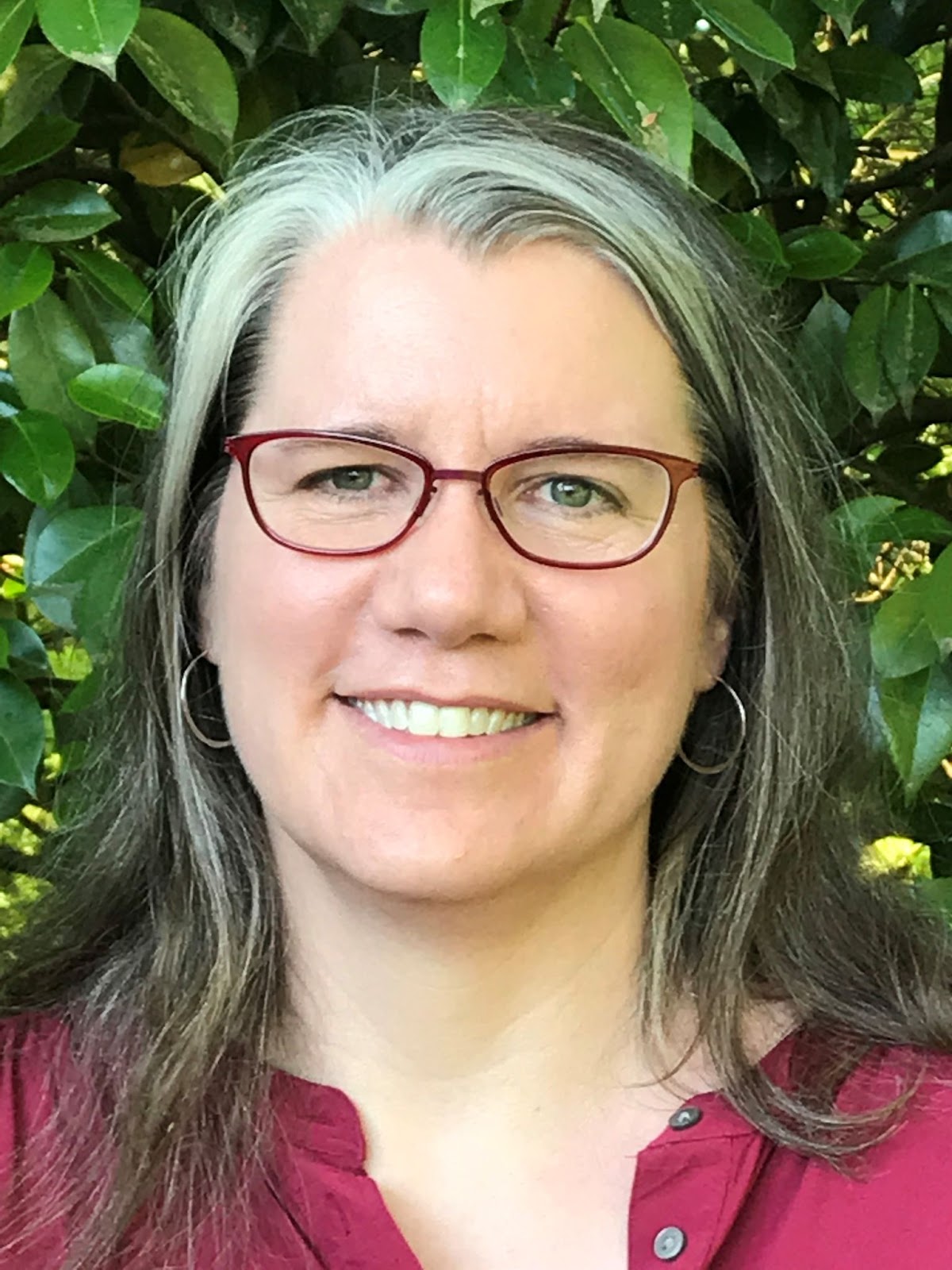
Stephanie Lamson
Director of Preservation Services
Nominees:
Robin Chin Roemer
Reed Garber-Pearson
Verletta Kern
Johanna Jacobsen Kiciman
Lisa Oberg
Madison Sullivan
John Vallier
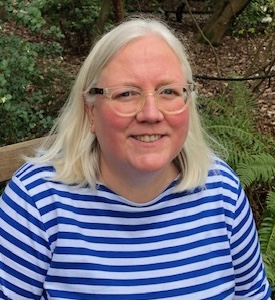
2024 Distinguished Librarian
Anne-Marie Davis
Collection Development Coordinator for Odegaard Library and Anthropology Librarian
Nominees:
Robin Chin Roemer, Sandra Kroupa, Alaina C. Bull, Reed Garber-Pearson, Caitlin Maloy, Verletta Kern, Michael Moore, Lisa Oberg, Madison Sullivan

2023 Distinguished Librarian
Jackie Belanger
Director, Libraries Assessment and Planning
Nominees:
Sandra Kroupa, Caitlin Maloy, Je Salvador
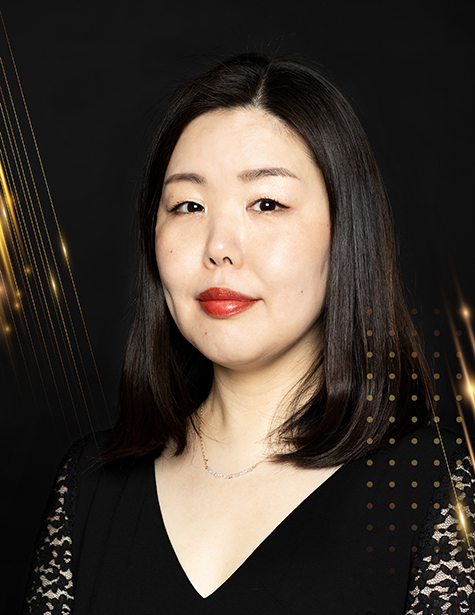
2022 Distinguished Librarian
Azusa Tanaka
Japanese Studies Librarian
Nominees:
Jackie Belanger, Alaina Bull, Verletta Kern, Sandra Kroupa, Diana Louden, Caitlin Maloy, Chelsea Nesvig, Je Salvador, Elliott Stevens
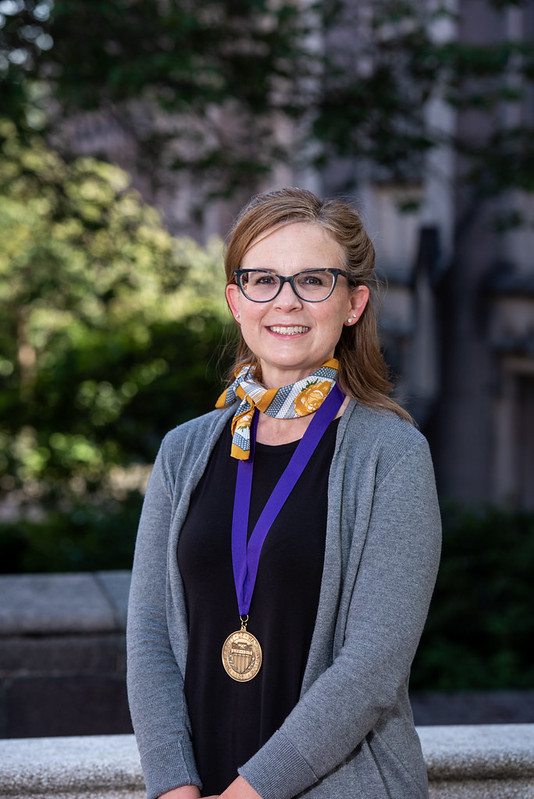
2021 Distinguished Librarian
Jessica Albano
Communication Studies & News Librarian and Head Government Publications, Maps, Microforms & Newspapers University Libraries
Nominees:
Michael Biggins, Alaina Bull, Conor Casey, Reed Garber-Pearson, Verletta Kern, Emily Keller, Diana Louden, Chelsea Nesvig, Susanne Redalje, Elliott Stevens, Christine Tawatao, Julie Planchon Wolf
- Justin Wadland, Interim Director of the UW Tacoma Library and Associate Dean University Libraries, 2020
- Hyokyoung Yi, Korean Studies Librarian / Head, East Asia Library Public Services, 2019
- Leslie Hurst, Literature & Humanities Librarian / Head, Teaching and Learning, UW Bothell / Cascadia Library, 2018
- Mary St. Germain, Near East and Jewish Studies Librarian / Head, Near East Section, International Studies, 2017
- Cass Hartnett, U.S. Documents Librarian / Gender, Women & Sexuality Studies Librarian, 2016
- Steve Shadle, Serials Access Librarian / Cataloging and Metadata Services, 2015
- Janet Schnall, Information Management Librarian, Health Sciences Library, 2014
- Glenda Pearson, Head of Microforms and Newspapers Collection, 2013
- Tim Jewell, Director of Information Resources and Scholarly Communication, 2012
- Nancy Huling, Head of Reference and Research Services, 2011
- Judith Henchy, Southeast Asian Studies Librarian / Special Assistant to the Dean of University Libraries for International Programs, 2010
- Mary Whisner, Reference Librarian,Gallagher Law Library, 2009
- Theresa Mudrock, History Librarian, Reference and Research Services, 2008
